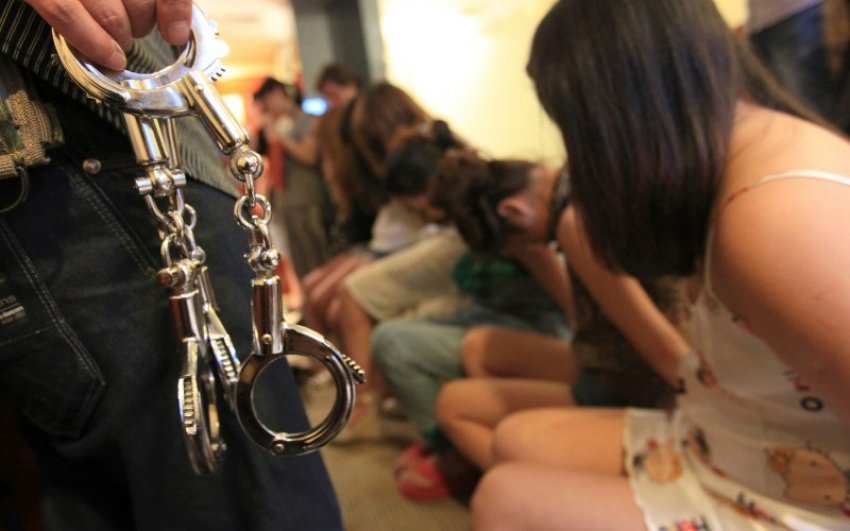Feminist activist warns of push to normalize sex trade, hide harms of child exploitation

WASHINGTON — A feminist activist is warning about the systematic push to normalize the sex trade and the work of progressive nonprofits that are guiding politicians on how to obfuscate the harms of child sex trafficking.
Speaking Wednesday morning on a panel about protecting children from sexualization, Natasha Chart, board chair of the Women's Liberation Front, documented the various ways in which commercial sexual exploitation of minors is being mainstremed. Chart's story of getting fired in part because she said transgender-identifying males could not be lesbians and for raising objections to the promotion of youth in the sex trade was reported by The Christian Post in April 2018.
Raised a Jehovah's Witness, Chart was taught that most people were bad. She recounted how she ran away at the age of 17 and shared some of her experiences interacting with a would-be pimp who had attempted to exploit her when she was in a vulnerable place as an angry teenager.
Years later, she was working at far-left social justice organization where she began to see the promotion of "youth sex work" which alarmed her. She started researching more and soon discovered that a considerable part of the nonprofit sector on the left was attempting to make the sex industry respectable.
Chart explained: "In a guide that continues to be recommended to policymakers and feminist activists, called 'Girls do what they have to do to survive: Eliminating methods used by girls in the sex trade and street economy to fight back and heal' — this was written in 2009 — by a no longer operating organization called The Young Women's Empowerment Project. They define their youth audience like this: 'Girls, including transgender girls, and young women, including transwomen, ages 12 to 23, who have current or past experience with any part of the sex trade and street economies."
The guide manipulatively makes the case that the ways in which society attempts to remove young girls from the sex trade is inherently harmful to them, including a section about "self-care" where self-harm was framed as somehow beneficial. Cutting and self-injury were described as a "soothing form of self-care" and was thus renamed as "self-harm resilience." Other forms of such "resilience" girls in the trade had written about included breaking bones and making cuts and burns on their skin.
The guide went on to explain that they used the phrase "harm reduction" as a way to understand this. "Harm reduction" was defined as "that all girls involved in the sex trade need to be in charge of their own decisions."
"And so just imagine the trauma and the need for help that those words hide," Chart elaborated, noting how so much of the language obfuscates what is actually being advocated.
"I would submit to you that a young girl who feels that she need to break her own bones to feel in control of her life is maybe not in a state where she doesn't need anybody's help," she said.
A small group of respected nonprofit groups released a media guide called "Say What?" in the summer of 2015, she explained, which coached news outlets on how to talk about trans-identifying and gender non-conforming persons and people in the sex trade, including youth, with respect.
"The guide described it as 'harmful' to use the words kids, teens, or juveniles" in favor of the more indeterminate terms "youth or young people," who supposedly knew how to make good decisions in these dire situations, Chart explained.
Other suggestions the media guide made centered on how journalists should use "replacement terms" when communicating on issues such as prostitution and commercially exploited children. One such sentence given as an example was: "Robin has been involved in the sex trade since they were 15 years old." Another was: "Robin has been trading sex for five years now." Yet another suggestion was: "Robin has identified as a sex worker since they were 15 years old."
"Youth in the sex trade, why we should decriminalize sex work," a final example from the media guide read.
The line of thinking evidenced by such suggestions and other articles which lent support to the sex trade is being quietly advanced by progressive nonprofit groups and foundations, Chart noted. When she raised the alarm about this and objected, her boss at the time reportedly reproached her and told her it was a "public health approach." She was fired approximately one week later.
"I didn't know it was possible to be fired for complaining to a social justice nonprofit about people whitewashing child sex trafficking, but I sure found out," Chart said.
"And I felt, and I still feel very deeply betrayed, especially because I could roll out another dozen examples of this language being pushed by everyone from AIDS advocacy communities to allegedly feminist media sites, claiming that this is human rights, that this is feminism."
"It's common that if an adult is trafficked for sexual exploitation they started as a minor and their first pimp passed himself off as a boyfriend," she added. "It should never be acceptable. It should never happen. It should not be politically acceptable under any circumstance to give that cover.
The Heritage summit was a gathering of policy experts and practitioners to collaborate and advance solutions to protect children from sexualization in the realms of culture, education, and healthcare.



























